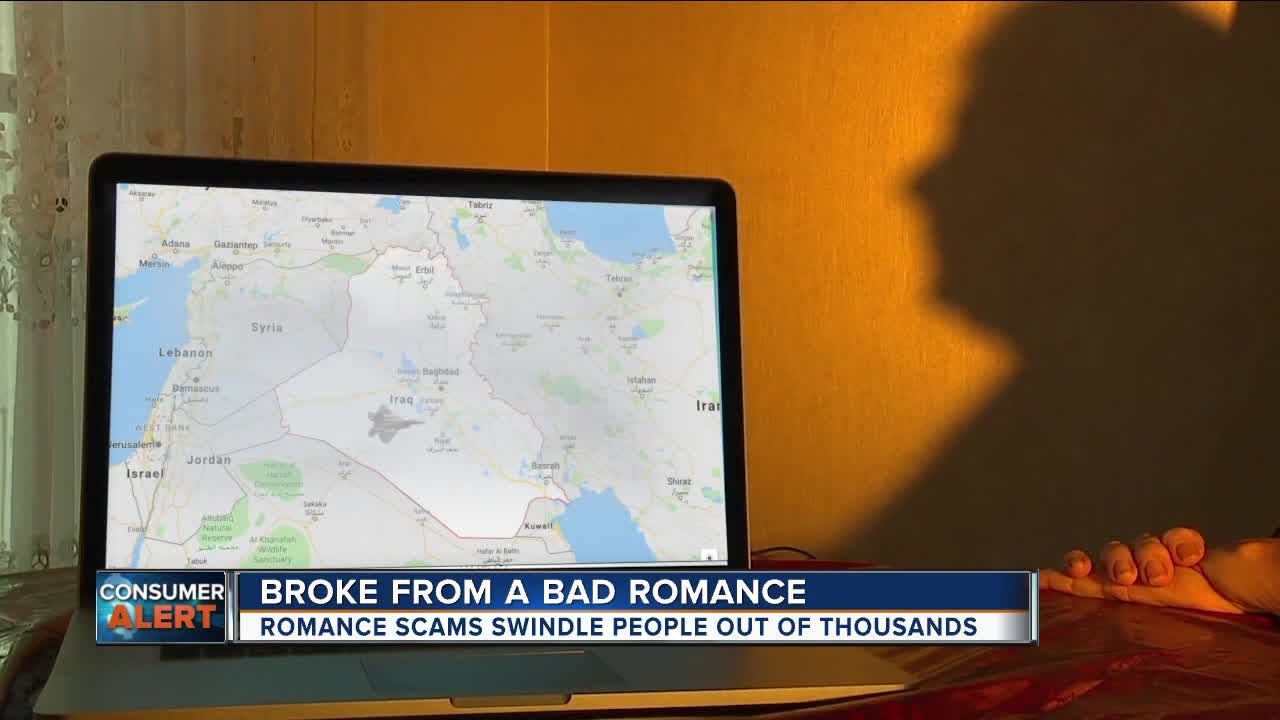Tis the season for love, let down and larceny.
Online dating has skyrocketed and so has the number of so-called “sweetheart scams”, yet law enforcement struggles to prosecute the swindlers.
A smooth talker
About six months after Ann met “Bradley Hall” through the online dating website OK Cupid, he asked for money.
For $600, he said he could return home early from Iraq, where he was serving in the Air Force, so they could start their lives together.
“He loved me. He wanted to make me his wife,” she said.
She sent him the money. Then, she sent more.
“In your heart, you feel like that’s not the right thing to do,” she said. “But you do it.”
Ann eventually wired him a total of $40,000, including cash she obtained through a home equity loan.
“Bradley” never came home.
“This gentleman was a real smooth talker,” she said. “I don’t know how they do it. It’s just their way of talking that they get you to give money.”
This divorced Northeast Ohio grandmother feels so ashamed she fell for an online romance scam she declined to share her real name for our report.
“I cannot understand how I did this,” she said. “I really don’t know why I was so stupid. It has put me back to being just out of high school with nothing.”
Romance scams skyrocket
Our sister station, News5 in Cleveland discovered that since 2010, reports of online romance scams have skyrocketed, according to the FBI’s Internet Crime Complaint Center (IC3). According to IC3 data:
· Over the last three years, Americans have lost more than $1 billion
· In 2018, 16,794 people were victims of confidence or romance scams between Jan. 1 and Nov. 27.
· In 2016, 14,546 people reported confidence or romance scams to the FBI. In 2014, only 5,791 people filed complaints about these types of schemes.
“The dating scene has really moved to the internet,” said FBI Special Agent Vicki Anderson. “We’ve really seen a big rise in these romance scams. It is the largest growing financial online fraud scheme.”
Anderson said online romance scams often provide a unique challenge for law enforcement officials.
“It’s not some individual sitting in a basement,” she said. “We have several schemes that are coming from various countries.”
“These individuals are very bright, are very manipulative. Most work in groups – it’s probably a group of individuals in a foreign country that are working together.”
The FBI found many romance scammers operate from Canada, England, Ghana and Nigeria.
"We don't have the authority to just go over and arrest somebody in another country,” she said.
How to protect yourself from “Sweetheart Swindlers":
1. Don’t send money to someone you have only met online. Just don’t.
2. Do a background check. Use Google. Search for their photo on other websites. Go the county clerk of court’s website where they live to look for civil and criminal charges.
3. Do talk to trusted friends. Get their opinions on your new admirer.
4. Do take it slow. Be skeptical of someone who immediately professes love for you.
5. Do be skeptical. If your new love interest won’t talk on the phone, video chat, or meet you in person, those are serious red flags they may be a “sweetheart swindler.”
6 Use a dating site with an identification verification feature. It may cost a little more, but it could help save you time, heartbreak and even money.



